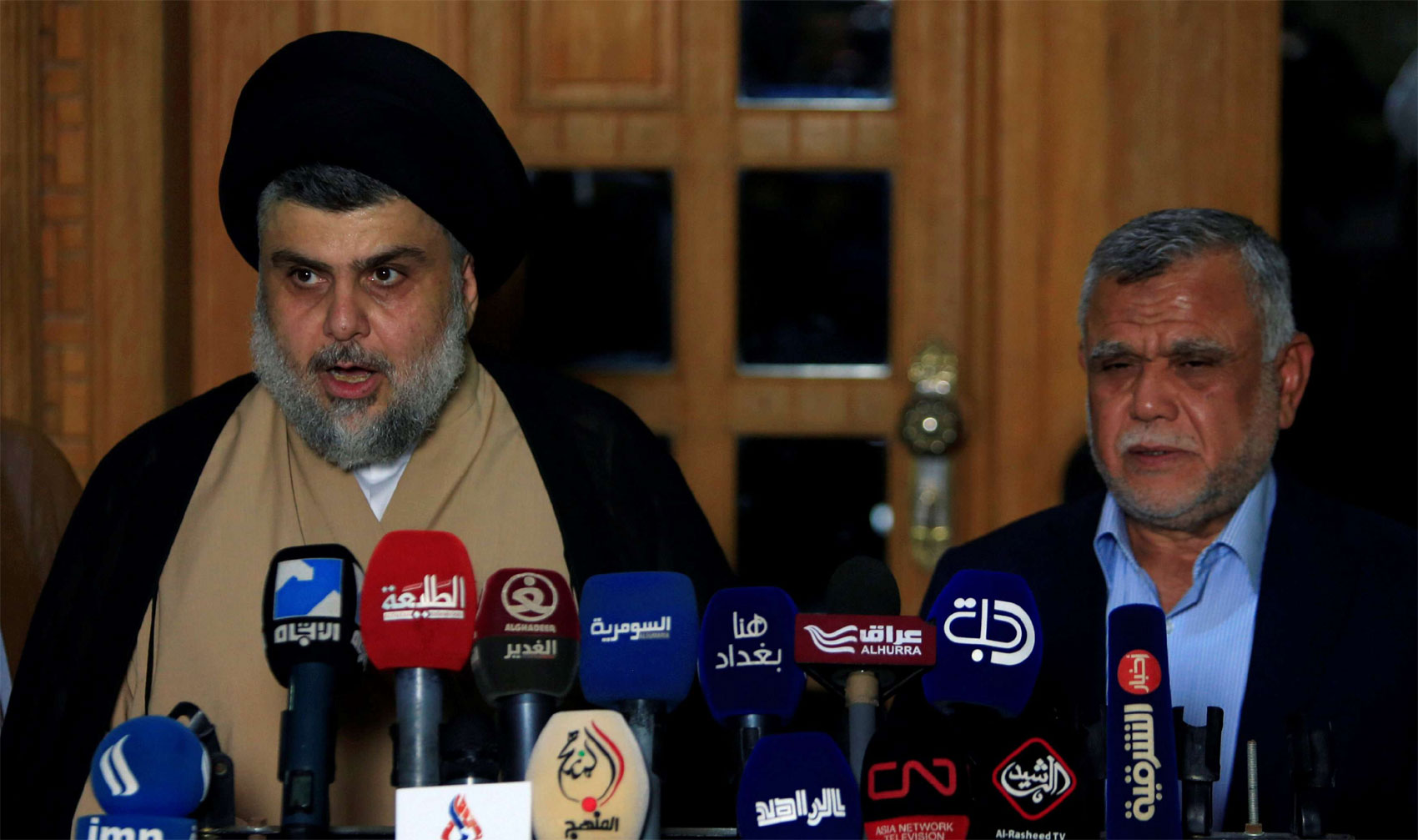

Iraqi Shiite cleric Muqtada al-Sadr, whose Saeroun (Forward) electoral coalition topped the ballots in last month’s parliamentary elections with 54 seats, has partnered with the Iran-backed Fatah coalition ahead of negotiations to form a new government.
The Fatah Alliance, formed to contest the May 2018 elections and its second-biggest winner with 47 seats, is led by Hadi al-Amiri, head of the Badr Organisation, which was a part of former Prime Minister Nouri al-Maliki's State of Law coalition until December 2017.
The combined coalition will control 101 seats, still far from the 165 required to form a working majority in the 329-seat Iraqi parliament, but a major step ahead of the upcoming parliamentary negotiations.
However, the announcement by Al-Sadr and Al-Amiri in the city of Najaf came as a surprise given the Saeroun coalition’s nationalistic campaign platform of strong opposition to the role of Iranian influence in Iraq.
At the news conference in Najaf, Al-Sadr reiterated his commitment to nationalistic goals, while sidestepping the potentially thorny issue of Fatah’s links to Iran.
“We had a very positive meeting in order to end the suffering of the country and the people,” Al-Sadr said. “Our new alliance is a nationalist one and within the national frames.”
The Victory Coalition, formed by incumbent Iraqi Prime Minister Haider al-Abadi in December after he also left the State of Law coalition, received the third-largest share of the votes and 42 seats.
It had been suggested that Prime Minister Haider al-Abadi might ally himself with the Saeroun coalition, which has no formal candidate for the post of Prime Minister, to secure a second term.
While the partnership between Saeroun and Fatah does not rule this out, the development does suggest that the results of Iraq’s 2018 parliamentary elections will continue to yield the unexpected.
What is certain is that the strengthening of both Al-Sadr and Iran-backed elements in Iraq’s government bodes poorly for relations with Washington, for whom both the Sadrists and the Badr Organisation have presented long-term antagonists in Iraq.
Al-Sadr-led militiamen actively fought US troops in the aftermath of the 2003 invasion, backed at the time by Iran. Al-Sadr has since sought to distance himself from Iranian influence and has focused his attention on public campaigning against corruption.
However, his partnership with Fatah cast doubts on the strength of his more recent stance against Iran.
Separately, the 12 May elections have been marred by allegations of fraud and irregularities, as well as a weak turnout – the lowest in 15 years – that reflected the apathy of voters to the electoral race.
Last week, a commission set up by the government to investigate alleged irregularities in the vote revealed its findings and recommended a recount for 5 per cent of the vote.
A recent fire at a storage site for ballot boxes in Baghdad, which an initial investigation suggested was deliberately lit by “criminals who seek to sabotage the political process”, cast further shade on the political process.
You might also like...

Rainmaking in the world economy
19 April 2024

Oman receives Madha industrial city tender prices
19 April 2024

Neom seeks to raise funds in $1.3bn sukuk sale
19 April 2024

Saudi firm advances Neutral Zone real estate plans
19 April 2024
A MEED Subscription...
Subscribe or upgrade your current MEED.com package to support your strategic planning with the MENA region’s best source of business information. Proceed to our online shop below to find out more about the features in each package.





